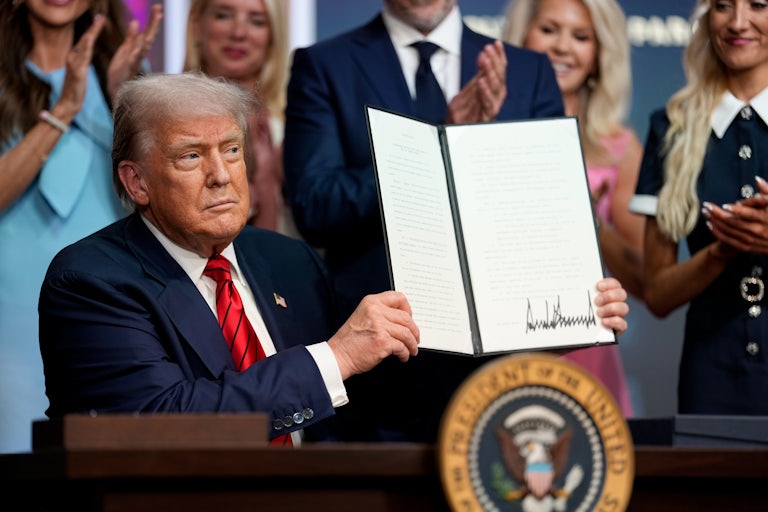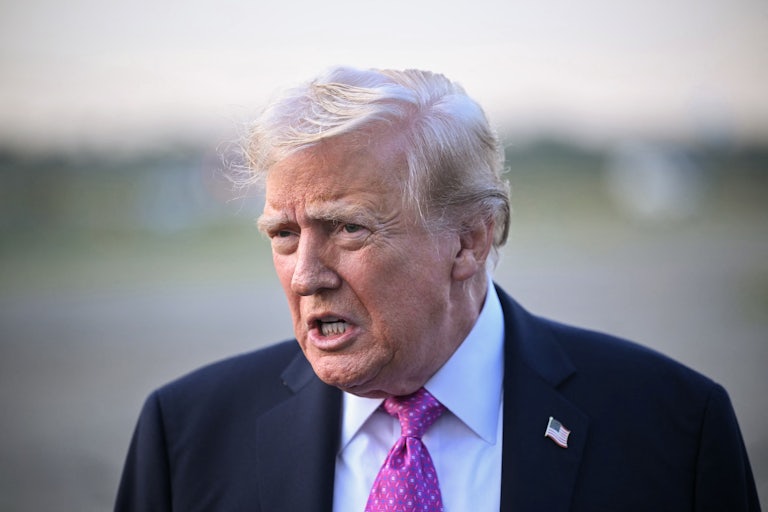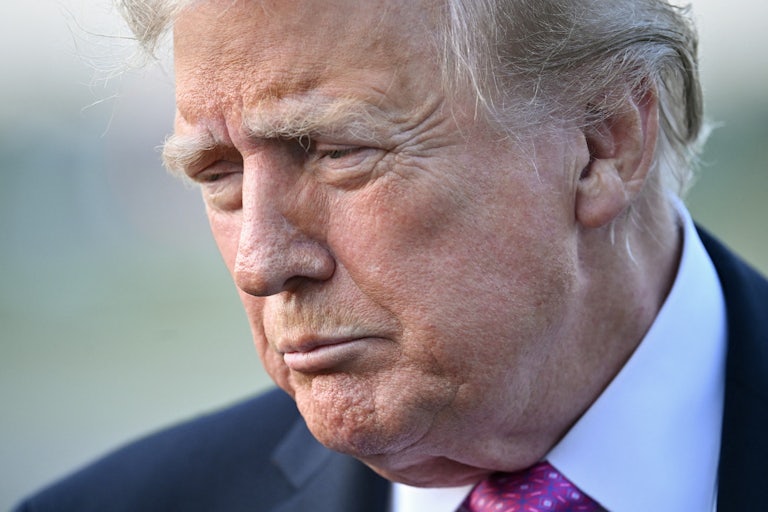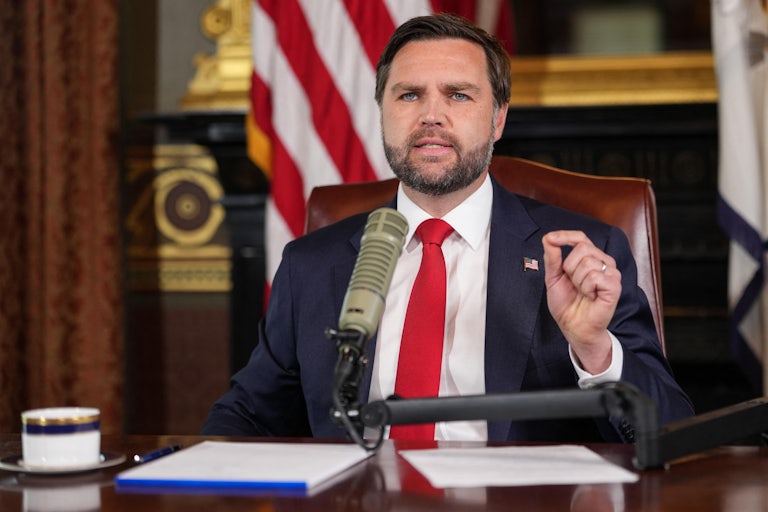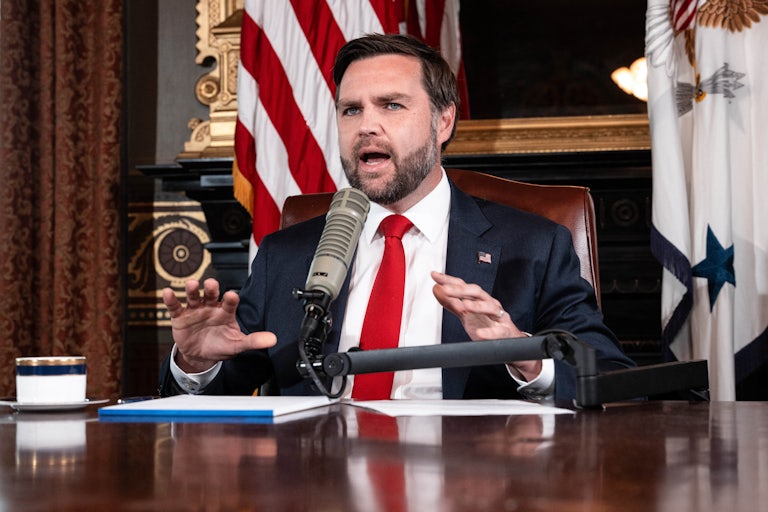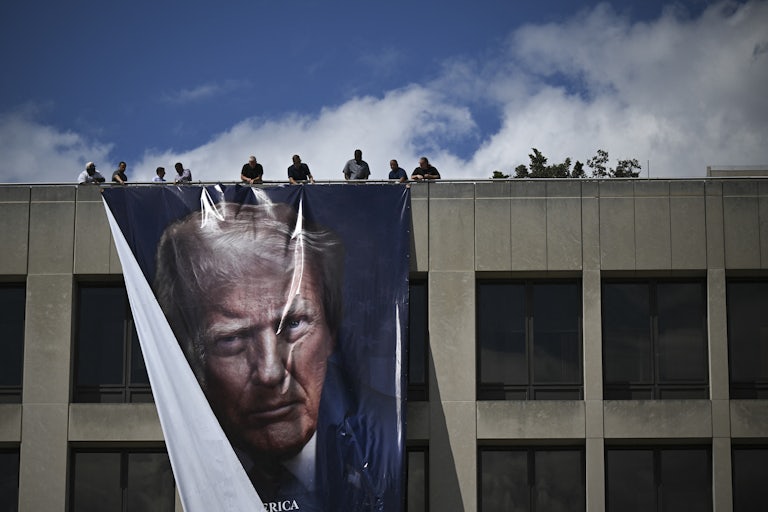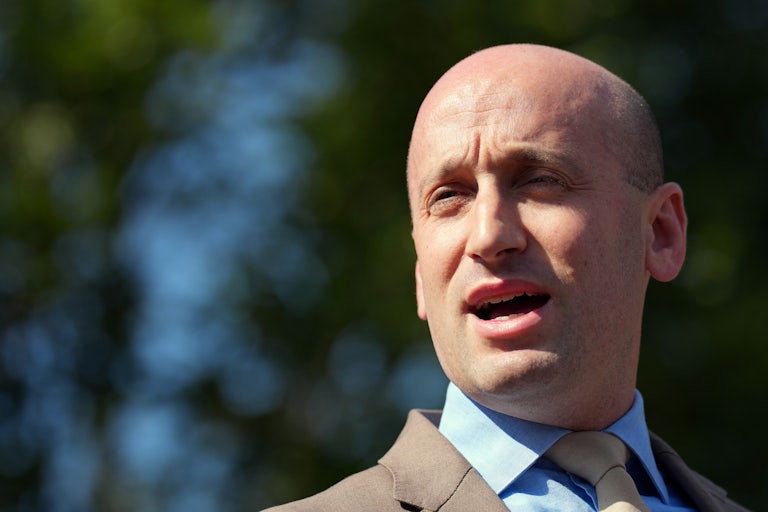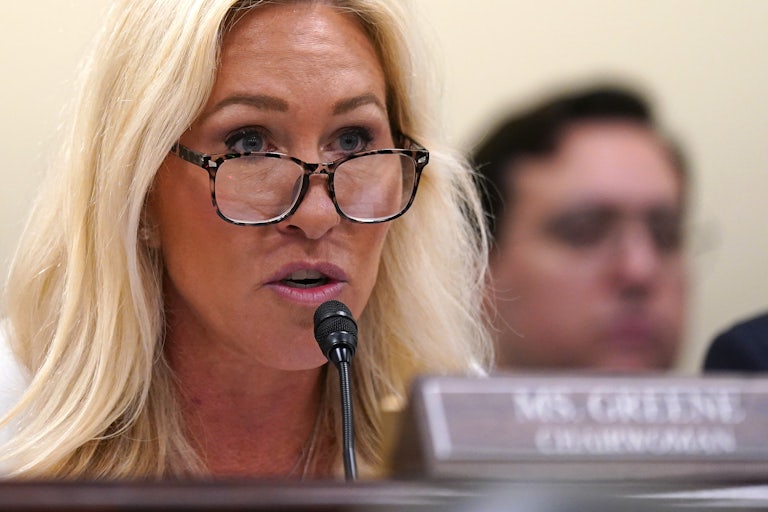Trump’s Biggest Corruption Scandal Isn’t Getting Enough Attention
Donald Trump cashed in on a massively corrupt foreign crypto deal—and no one blinked.
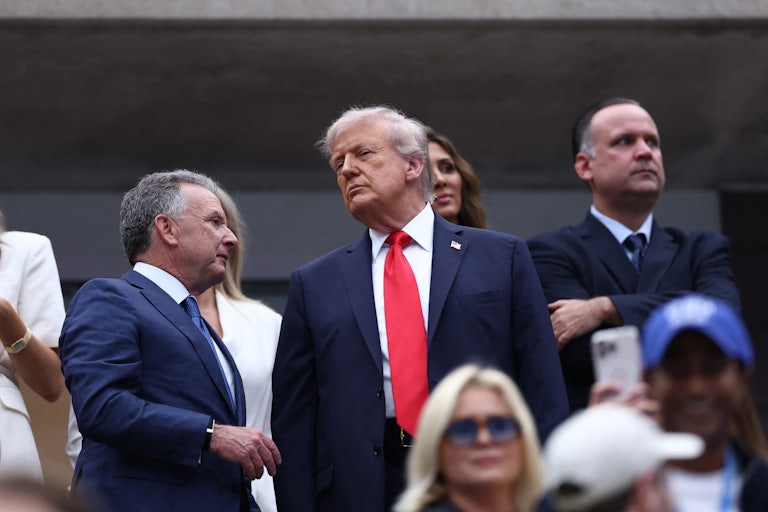
A New York Times exposé published Monday tells the tale of two back-to-back deals that enriched three powerful families: the Trumps, the Witkoffs (as in Trump’s Middle East envoy, Steve Witkoff), and the ruling family of the United Arab Emirates.
In one deal, announced in May, a firm of Emirati royal Sheikh Tahnoon bin Zayed Al Nahyan invested $2 billion in World Liberty Financial, a cryptocurrency company owned by the Trump and Witkoff families—which consequently became among the most prominent crypto firms overnight.
In the other, negotiated “at the same time and by some of the same people,” the White House two weeks later agreed to sell the UAE hundreds of thousands of the world’s most valuable artificial intelligence chips, despite national security concerns.
The Times revealed that some officials in the Trump administration were wary about the chip deal due to UAE-China ties. But a key dissenter at the National Security Council, David Feith, was taken out of the equation when MAGA provocateur Laura Loomer questioned his (and five other NSC members’) loyalty, leading to their removal by the president. Silicon Valley investor David Sacks, Trump’s AI and crypto czar, then took a leading role in the negotiations—and received a White House ethics waiver in order to do so.
While the Times reports that there is no evidence that the two deals constituted an explicit quid pro quo—and the White House, and those involved, maintains they were not linked—they do “violate longstanding norms in the United States for political, diplomatic and private deal-making among senior officials and their children,” according to ethics lawyers cited in the report.
On Bluesky, economist Ryan Cummings, who served on President Joe Biden’s Council of Economic Advisers, wrote that the deals, if linked, would represent, by far, “the largest public corruption scandal in the history of the United States”—amounting to a $2 billion bribe, whereas the most comparable incident, the Harding administration’s Teapot Dome scandal, involved bribes amounting to about $10 million in today’s dollars, he said.
Dan Nexon, a political scientist at Georgetown University, observed that the report reveals how “U.S. foreign policy is much easier to understand once you accept that the main ‘grand strategy’ of the Trump administration is straight-up kleptocracy.”
“The Trump Administration is cashing in on foreign crypto deals—and weakening guardrails that protect our advanced technology,” wrote Senator Elizabeth Warren on X. “We should not pass any crypto legislation without shutting this down.”
